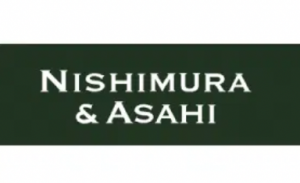- Practice area
- Compliance
- Medical Field/
- Healthcare
- Thailand
Thailand has paved the way for a more relax usage of cannabis and hemp, e.g., for medical purposes, promote of cannabis and hemp as a commercial cash crop and usage in food and beverage industries, by removing both items from category 5 of the Narcotics Code. This was done by way of a Notification Re: Prescribing the List of Narcotics Under Category 5, released on 8 February 2022 (“Notification”). However, the extracts from any part of the cannabis and hemp plant remain banned with the following exceptions:
- a) Extracted substance containing tetrahydrocannabinol (THC) not exceeding 0.2 percent, per weight but only for a substance authorised to be extracted from cannabis or hemp grown in Thailand; and
- b) Extracted substance of cannabis or hemp seeds grown in Thailand.
- 1. Appointment of a “Board” to supervise and regulate cannabis and hemp;
- 2. Permission requirements for the production, import, export and sale of cannabis and hemp (including permit fees);
- 3. Permission requirements for advertising cannabis and hemp;
- 4. Protective measures for people against the consumption and misuse of cannabis and hemp (sale for the purpose of consumption is prohibited for anybody below 20 years of age, as well as pregnant and lactating women); and
- 5. Provision of penalties and provisional measures (the highest penalty has an imprisonment period of not exceeding three years, a fine not exceeding THB 300,000, or both).
- i) Cannabis means a herb plant belongs to the genus of Cannabis. It has a greyish green stem, long oval shape leaves with deep lobbed to its base, sawtooth blade edges, green flowers, and contain psychotic and nerves affecting substances.
- ii) Hemp means a herb plant with botanical features similar to Cannabis. However, it has a higher stem, more light-color steep leaves, and contain psychotic and nerves affecting substances.
- 1. Cannabis or its extracts thereof, belonging to Cannabis genus, is a controlled herb.
- 2. A person over 20 years of age is permitted to possess, use, handle, safeguard, relocate, and sell the controlled herb under Clause 1, except for:
-
i) use for smoking in public;
-
ii) use by a pregnant or lactating woman;
-
iii) sale to a person under the age of 20, as well as to a pregnant or lactating woman.
-
- 3. A medical professional, Thai traditional medical professional, Thai applied traditional medical professional, practitioner of Chinese medicine and practitioner of folk medicine under the laws regarding Thai traditional medicine are permitted to use the controlled herb under Clause 1 with their patients.
- 4. Patients under Clause 3 are permitted to possess, transport, handle, safeguard, and use said controlled herb in the amount as prescribed for use for a period of 30 days.
- 5.This notification is effective as of the day directly following the date upon which it was published.

